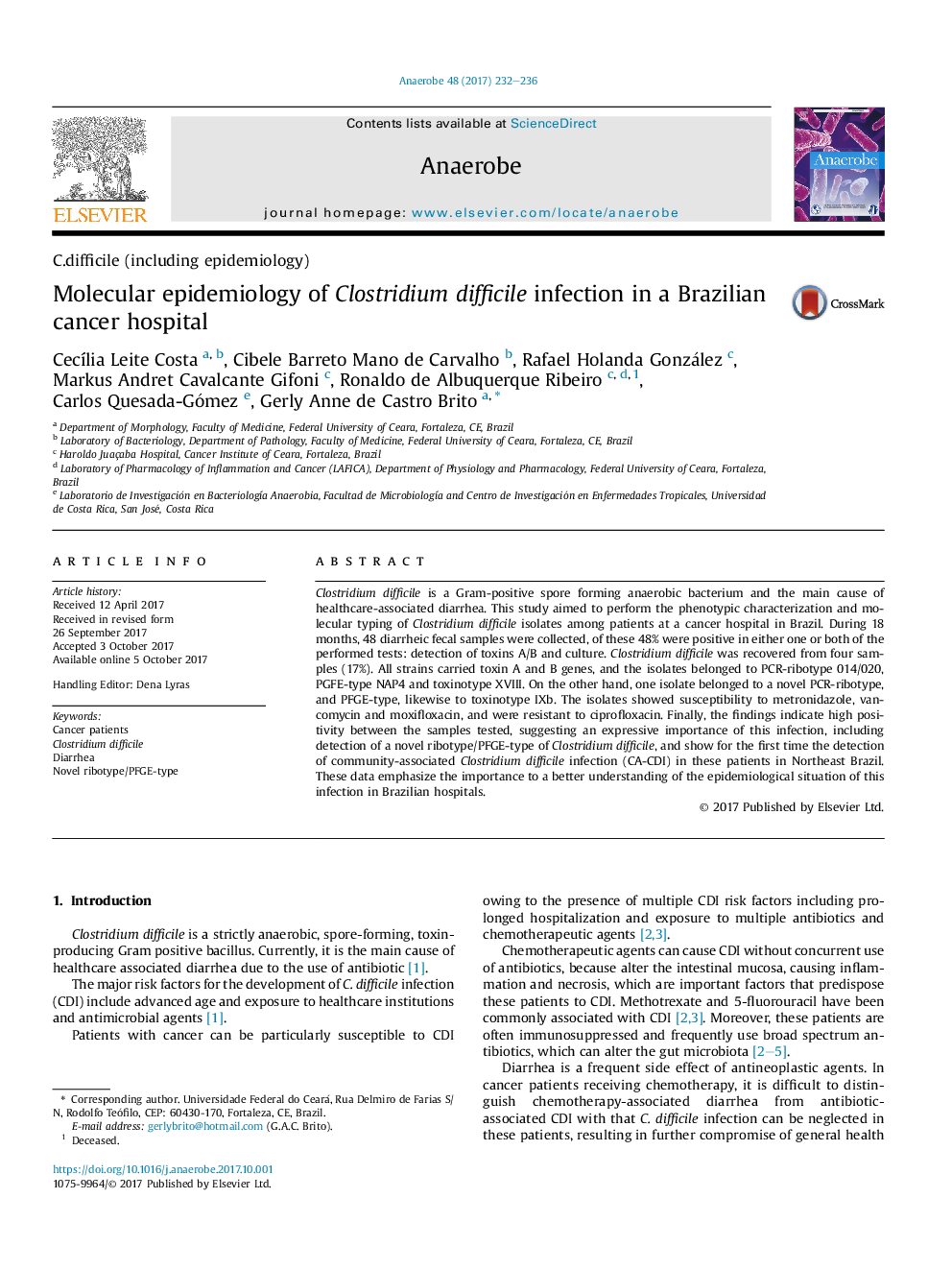| Article ID | Journal | Published Year | Pages | File Type |
|---|---|---|---|---|
| 5671364 | Anaerobe | 2017 | 5 Pages |
â¢High incidence of Clostridium difficile infection (CDI) in patients with cancer in Brazil.â¢A novel ribotype/PFGE-type of C. difficile was described.â¢CDI is a situation that should be of concern for immunosuppressed individuals.
Clostridium difficile is a Gram-positive spore forming anaerobic bacterium and the main cause of healthcare-associated diarrhea. This study aimed to perform the phenotypic characterization and molecular typing of Clostridium difficile isolates among patients at a cancer hospital in Brazil. During 18 months, 48 diarrheic fecal samples were collected, of these 48% were positive in either one or both of the performed tests: detection of toxins A/B and culture. Clostridium difficile was recovered from four samples (17%). All strains carried toxin A and B genes, and the isolates belonged to PCR-ribotype 014/020, PGFE-type NAP4 and toxinotype XVIII. On the other hand, one isolate belonged to a novel PCR-ribotype, and PFGE-type, likewise to toxinotype IXb. The isolates showed susceptibility to metronidazole, vancomycin and moxifloxacin, and were resistant to ciprofloxacin. Finally, the findings indicate high positivity between the samples tested, suggesting an expressive importance of this infection, including detection of a novel ribotype/PFGE-type of Clostridium difficile, and show for the first time the detection of community-associated Clostridium difficile infection (CA-CDI) in these patients in Northeast Brazil. These data emphasize the importance to a better understanding of the epidemiological situation of this infection in Brazilian hospitals.
